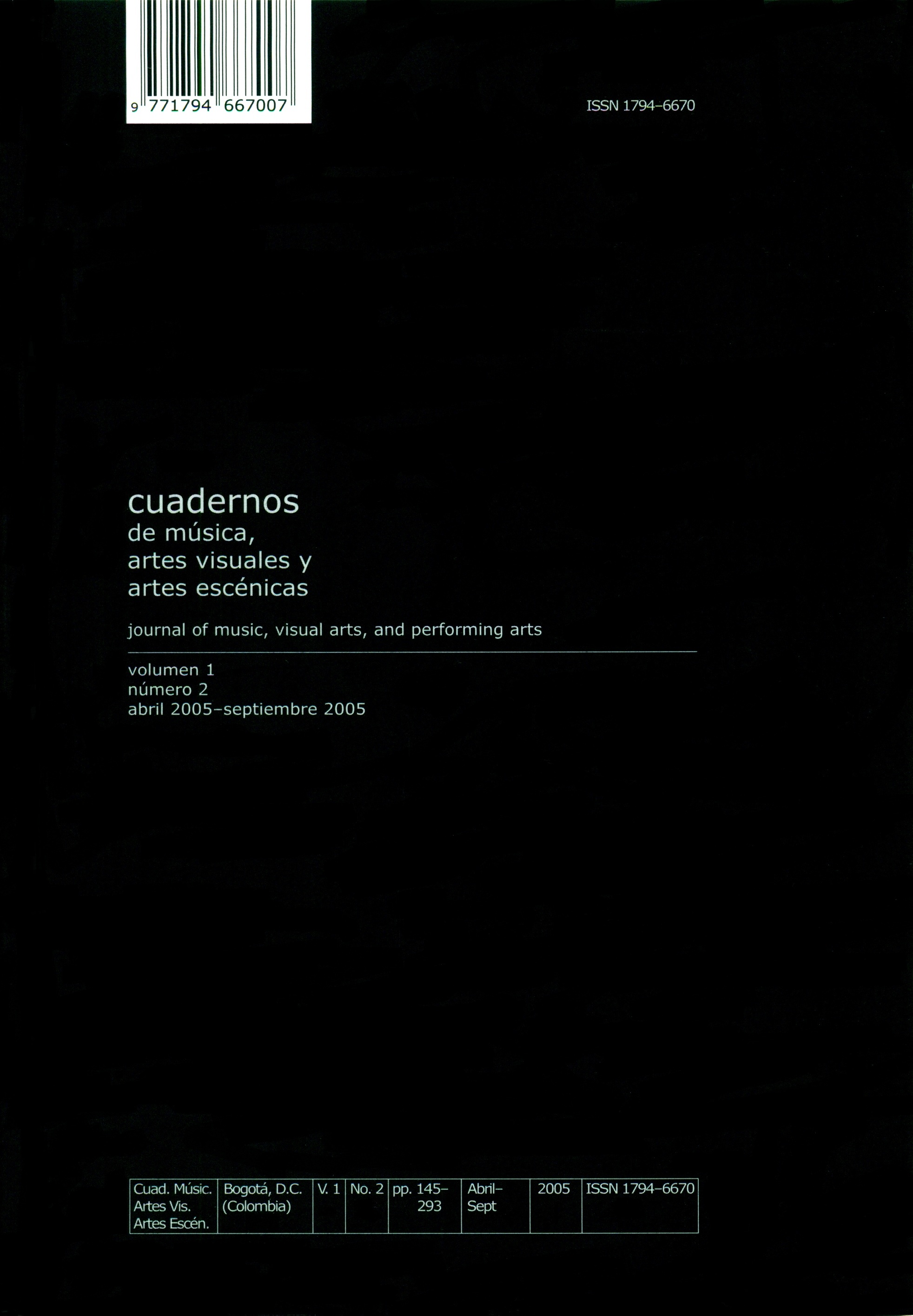Abstract
Interest in knowing the genesis of poetic word considers reading an important source of inspiration for the writer and of his access to the world. Attention to the birth of the literary vocation of many poets is normally aided through a study of their personal libraries and moreover such other data associated with the very production of the writer, allowing for introspection into the resource text character of the poet’s creative bases. Less evident is establishing musical score reading as a source of inspiration in literary creation, that is, that which is strictly musical spelling and its translation at the sonorous level.The purpose of this article is to attempt to establish certain parallelisms that confirm what is more generally found in the artistic culture shared by Paul Verlaine and Federico García Lorca through the piano of Claude Debussy. In so doing, we use a closer point of perspective similar to what Lorca may have enjoyed in the poetic reading of Verlaine as symbolist. This approach is intentionally distant, firstly given the objective inability that all intellectual constructs possess when attempting to penetrate the poetic reasons of “another,” but more importantly, the approach broadens when interrelating various fields of knowledge through analytical tools applied to the musical works of Debussy. We do not question an influence, inheritance or shared problem, rather uncover features of a common sensitivity shared by the three individuals. From this perspective, we deal with that imaginary line running through Verlaine grandfather (1844–1896) to Debussy father (1862–1918), and finally to Lorca son and grandson (1898–1936).This journal is registered under a Creative Commons Attribution 4.0 International Public License. Thus, this work may be reproduced, distributed, and publicly shared in digital format, as long as the names of the authors and Pontificia Universidad Javeriana are acknowledged. Others are allowed to quote, adapt, transform, auto-archive, republish, and create based on this material, for any purpose, provided the authorship is duly acknowledged, a link to the original work is provided, and it is specified if changes have been made. Pontificia Universidad Javeriana does not hold the rights of published works and the authors are solely responsible for the contents of their works; they keep the moral, intellectual, privacy, and publicity rights.
Approving the intervention of the work (review, copy-editing, translation, layout) and the following outreach, are granted through an use license and not through an assignment of rights. This means the journal and Pontificia Universidad Javeriana cannot be held responsible for any ethical malpractice by the authors. As a consequence of the protection granted by the use license, the journal is able to publish retractions or to correct information already published. Publishing contents in this journal does not generate royalties for contributors.


